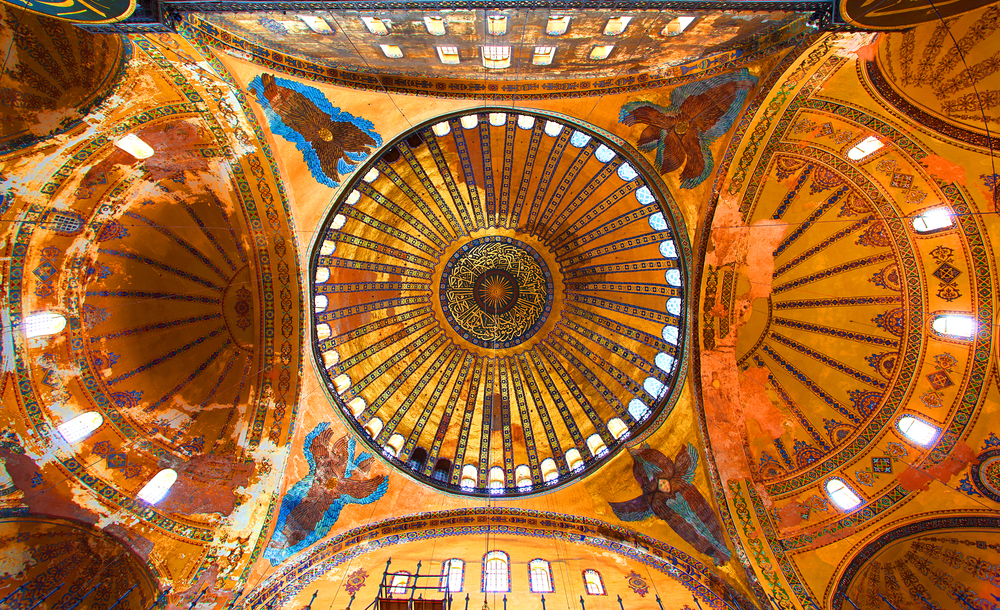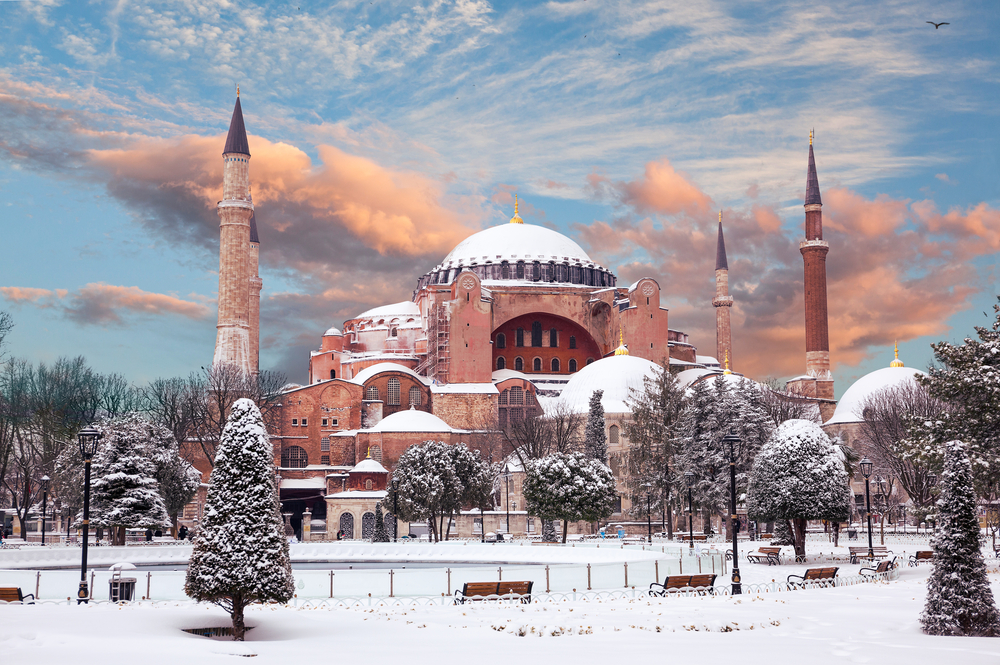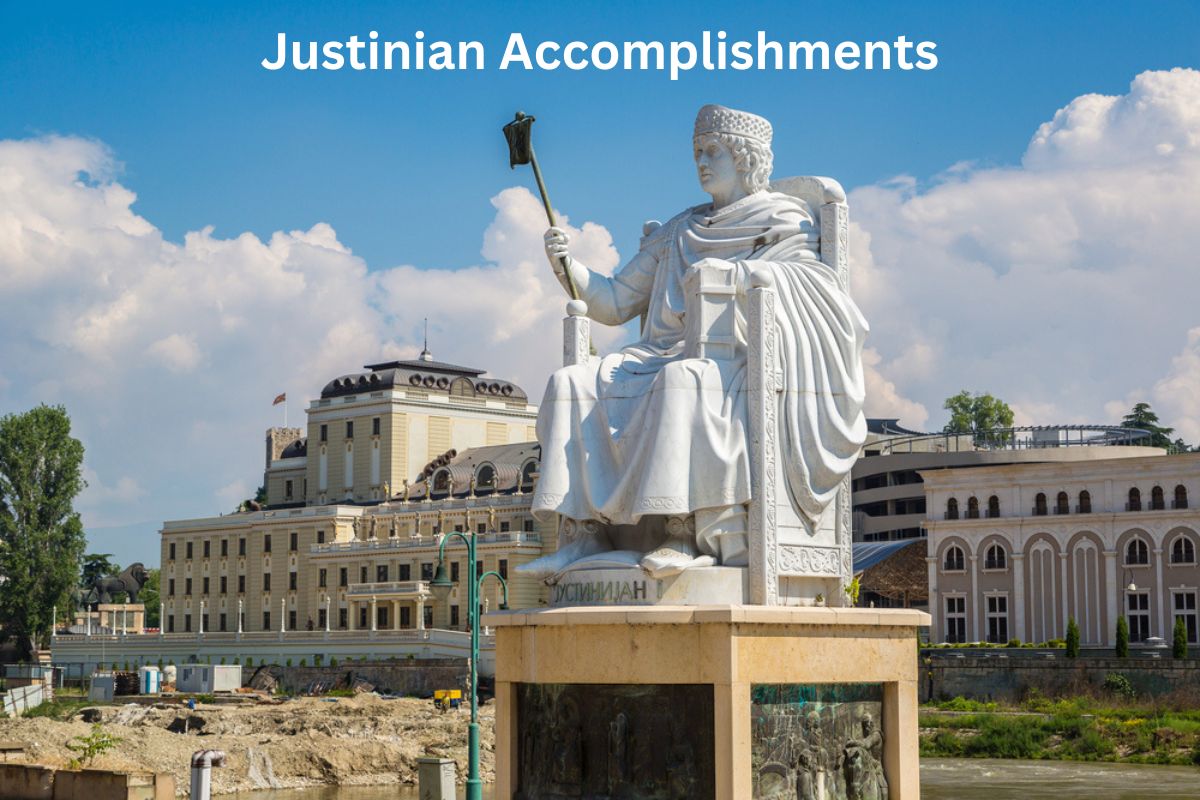Justinian I, also known as Justinian the Great, was a Byzantine emperor who ruled from 527 to 565 CE. He left an indelible mark on the Byzantine Empire through a range of accomplishments and reforms.
Justinian’s reign was characterized by notable achievements such as the codification of Roman law, the reconquest of former Roman territories, and ambitious building programs.
His legal reforms, expansion of Byzantine influence, strengthening of the Byzantine Navy, defense against external threats, promotion of education and learning, religious policies, and administrative reforms all contributed to the shaping of the Byzantine Empire and its lasting legacy.
Accomplishments of Justinian
1. Codification of Roman Law
Justinian’s codification of Roman law was a monumental achievement. He recognized the need for a unified and accessible legal system and commissioned a team of legal scholars to compile and organize existing Roman laws into a coherent whole.
Also Read: Facts About Justinian I
The resulting compilation, known as the Corpus Juris Civilis (Body of Civil Law), consisted of several components, including the Codex Justinianus (a collection of imperial laws), the Digest (a compilation of legal opinions and interpretations), the Institutes (a textbook for law students), and the Novels (later additions and updates).
The Corpus Juris Civilis became a foundational legal document, greatly influencing legal systems across Europe and serving as a basis for civil law codes to this day.
2. Reconquest of Former Roman Territories
Justinian was determined to restore the territorial integrity of the Roman Empire. He launched military campaigns under the leadership of skilled generals, most notably Belisarius and Narses.
These campaigns aimed to reconquer lost territories in North Africa, Italy, and Spain that had fallen under the control of various Germanic tribes and other rival powers.
Through a series of successful military campaigns, Justinian managed to reclaim significant parts of these territories. Notable successes include the reconquest of the Vandal Kingdom in North Africa and the recovery of major cities such as Rome and Ravenna in Italy.
3. Building Programs (including the Hagia Sophia)
Justinian embarked on an ambitious building program throughout his empire, leaving a lasting architectural legacy. One of his most famous projects was the construction of the Hagia Sophia in Constantinople (modern-day Istanbul, Turkey).
Also Read: The Hagia Sophia Facts
Completed in 537 CE, this massive cathedral showcased innovative architectural techniques and engineering marvels, including a vast dome. The Hagia Sophia became the spiritual and symbolic heart of the Byzantine Empire and later served as a model for many Byzantine and Ottoman mosques.
Justinian’s building projects extended beyond the Hagia Sophia. He also initiated the construction or renovation of numerous other churches, monasteries, palaces, fortifications, and public works.
These included the Church of the Holy Apostles, the Basilica Cistern, the Walls of Constantinople (which fortified the city against invaders), and the expansion and beautification of Constantinople itself.
These architectural endeavors aimed to enhance the empire’s grandeur, demonstrate its cultural and religious prowess, and solidify Justinian’s reign as a period of revitalization and prosperity.

4. Legal Reforms
Justinian implemented significant reforms to the Byzantine legal system, aiming to streamline and clarify legal procedures. He recognized the need to update and consolidate existing laws to ensure consistency and fairness.
To achieve this, he appointed a commission of legal experts, headed by the jurist Tribonian, to revise and codify the laws. Their efforts resulted in the creation of the Corpus Juris Civilis, which brought together and organized the vast body of Roman legal principles.
Justinian’s reforms helped establish a more coherent legal framework, making it easier for citizens to understand and navigate the legal system.
5. Expansion of Byzantine Influence
Justinian was dedicated to expanding Byzantine influence beyond its borders. He engaged in diplomatic missions, formed alliances with neighboring kingdoms, and sought to extend Byzantine cultural, religious, and political influence.
Through strategic marriages and alliances, he aimed to solidify the Byzantine Empire’s position as a dominant force in Europe and the Mediterranean. By promoting Byzantine culture, religion, and customs, Justinian sought to strengthen the empire’s soft power and enhance its reputation as a center of civilization.
6. Strengthening of the Byzantine Navy
Justinian recognized the importance of naval power in securing Byzantine interests, protecting coasts, and projecting force across the Mediterranean. To strengthen the Byzantine Navy, he invested in the construction of new warships and the modernization of existing fleets.
The navy played a crucial role in Justinian’s military campaigns, particularly during the reconquest of North Africa and Italy. His naval forces, under the command of skilled admirals like Belisarius, ensured control of vital sea routes and facilitated the transport of troops and supplies.
The strengthened navy also served as a deterrent against potential adversaries and safeguarded Byzantine trade and maritime interests.
7. Defending Against External Threats
Justinian faced several external threats during his reign and successfully repelled them through military campaigns. One notable example was the defense against the Sassanian Persian Empire in the east.
Justinian’s forces, led by skilled generals like Belisarius and Narses, managed to repel Persian incursions and protect Byzantine territories. Additionally, in the west, Justinian launched military campaigns against the Ostrogoths in Italy and the Vandals in North Africa.
Through strategic military victories and diplomatic negotiations, he managed to reclaim these territories and restore them to Byzantine control, thereby securing the empire’s borders and defending against external threats.

8. Promotion of Education and Learning
Justinian recognized the importance of education and learning in maintaining a prosperous and intellectually vibrant empire. He founded the University of Constantinople, which became a renowned center of advanced education.
The university offered a broad curriculum, including subjects such as law, philosophy, medicine, and mathematics. Justinian also encouraged the study of classical works and funded translations of important texts into Greek, ensuring their preservation and dissemination.
His support for education and learning contributed to the intellectual and cultural flourishing of the Byzantine Empire.
9. Religious Policies
Justinian played a significant role in religious affairs during his reign. He sought to maintain orthodoxy within the Byzantine Empire and address theological controversies. In 553 CE, he convened the Fifth Ecumenical Council, known as the Second Council of Constantinople.
This council aimed to resolve theological disputes, including the issue of the Three Chapters, which concerned the writings of certain theologians.
The council affirmed the Chalcedonian Creed, which defined the orthodox Christological position. Justinian’s religious policies aimed to promote religious unity and stability within the empire, while also defending and preserving the theological teachings of the church.
10. Administrative Reforms
Justinian implemented administrative reforms to enhance the efficiency and effectiveness of the Byzantine bureaucracy. He reorganized government departments to streamline decision-making processes and improve governance.
Justinian introduced a system of civil service examinations to ensure that officials were qualified and capable. He also implemented stricter accountability measures, including measures to combat corruption and malfeasance among bureaucrats.
These administrative reforms aimed to create a more efficient and responsive government, strengthening the empire’s administration and governance.
Through his efforts to defend the empire, promote education, shape religious policies, and reform the administrative system, he left a lasting impact on the Byzantine Empire. Justinian’s accomplishments contributed to the empire’s stability, cultural development, and institutional effectiveness during his reign and beyond.
